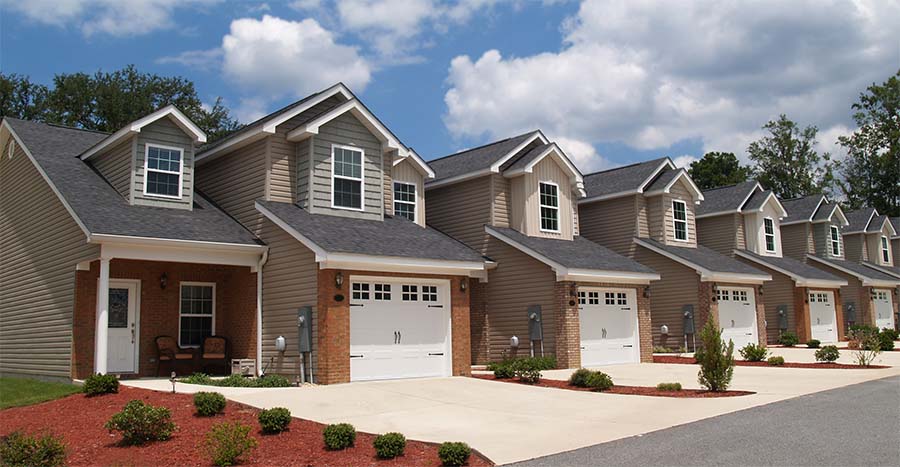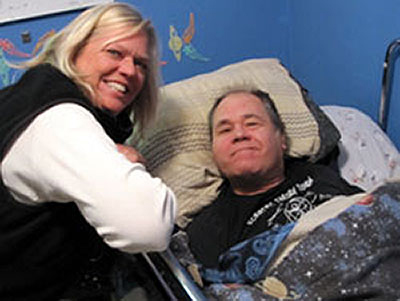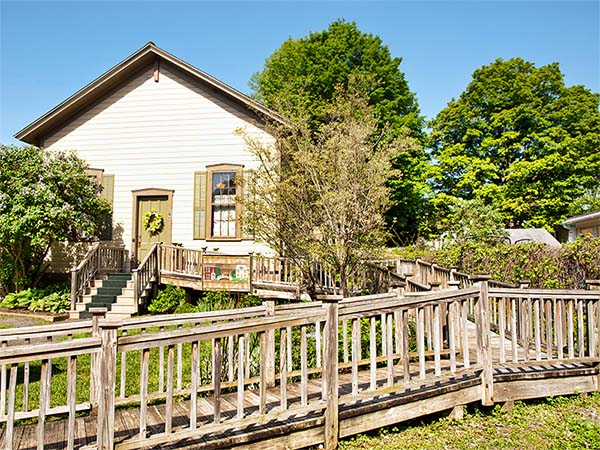Finding housing options for adults with special needs can be complicated!
Group homes and assisted living facilities are a fairly new concept, as years ago it was a given that the majority of adults with special needs would be institutionalized for the duration of their adult lives.
Thankfully, after decades of societal change and also countless cases of litigation, that type of thinking has changed. Now most special needs adults, even including those with very severe needs, live in a group home, assisted living facilities, or a community setting rather than a hospital or institution.
The US Supreme court has even taken action, ruling that adults with special needs who receive government benefits be housed in the least restrictive setting as is possible. There are different housing options available and finding the right one for each special needs adult is a very important process.

Many special needs adults live with their parents or other family members.
Special needs adults who spend their adulthood living at home with their parents are not subjected to what can sometime be a very stressful transition when they move away from home.
An additional benefit is that they are also usually in a home with several different caregivers, rather than just one, as many family members will have experience tending to various needs. Medicaid is often times used to pay family members for providing care in their homes as it is better than the cost of providing care elsewhere.
Along with the pros and benefits of living at home, come some pitfalls as well.
Some special needs adults may be more than their parents can deal with as they grow older. The special needs adult can have a harder time dealing with parents providing care and at the same time, the parents are aging and becoming less adept at providing care.
Many times in these types of situations, the special needs adult has far less opportunity to meet and interact with others outside the home, as they are constantly surrounded by family members. Further, as the parents become too old to provide adequate care, it can be even more stressful later on in life if the special needs adult has to change settings.
In these instances it is always a good idea to have some sort of transition plan in place, both for as the parents age, but also if a tragedy was to strike and one of the caregivers passed away.

Section 8 housing
Section 8 housing is another option that provides vouchers for special needs adults.
As a general rule, Section 8 will pay for two-thirds of a special needs adult’s housing cost and the other one-third is paid by wages or some sort of monthly income.
Many times a special needs adult will receive SSI or SSDI as their sole source of income and this generally qualifies them for Section 8.
These vouchers can allow mild to medium special needs adults to live within a community, but it can sometimes take years to acquire the voucher. The other problem is, by the time the voucher is acquired, it may not be easy to find housing in any given community.
The available housing may be full. This can create a rather stressful process to go through.
The landlords who own and operate Section 8 housing are subject certain criteria and must meet certain standards and requirements to rent their units, however these standards are as a rule, not monitored very closely.
It is a good idea to check out and thoroughly vet a Section 8 housing community before helping a special needs adult move in. This can keep surprises from popping up later on down the line as to the lack of adhering to basic standards.

Group Homes
Group homes are another option for special needs adults and the biggest benefit that they provide is to allow the adults to live among others with similar special needs.
A group home is usually staffed with workers or counselors or both, who assist the residences in living on their own.
Group homes come in many shapes and sizes and are often times privately funded as well as government funded. They are an excellent option for residents that don’t require advanced care, but are not completely capable of living on their own. They also provide a great social setting that many special needs adults would not otherwise have access to.

Assisted Living Facilities
Assisted living facilities are a little different from group homes in that they may generally provide housing for older adults who live in their own apartment within a building complex.
The term ‘assisted living’ can mean a wide variety of things in this day and age and may vary from having facilities for shared meals to getting assistance with bathing and other daily needs.
Some facilities will administer medications and others do not. Some will also specialize in treating certain conditions such as dementia or neurological disorders.

Skilled Nursing facilities
Skilled nursing facilities are for people who require more around the clock, specialized care.
These types of facilities usually provide care that can’t be received at home.
These types of group homes are usually a last resort and are appropriate for special needs adults who have severe needs and require constant supervision.
They are usually very, very, expensive and may cost upwards of $10,000 per month. Medicaid will generally pay for a large portion of this cost and many times all of the cost, but not always. The cost is certainly worth the price, but can be a large burden to bear in certain cases.

In some cases trusts are set up for special needs adults and they can pay for the ownership of a house or perpetually pay rent for an individual.
This is usually a very flexible option for the beneficiary as not only can the housing be paid for as part of the trust, but varies services and care can be paid for as well.
These types of situations come with a larger responsibility, however, as maintenance of a house, yard, etc must be taken into account and paid for out of the trust.
This can be an expensive option, but one that can be incredibly beneficial for the special needs adult.
Click for more information on our group home and assisted living facility.








